In today's fast-paced world, the way we work is rapidly evolving, especially in the retail sector. As more companies embrace telecommuting, our organization is excited to introduce a new policy that outlines how this flexibility will benefit both our employees and our customers. With a focus on maintaining high service standards while allowing for a better work-life balance, we believe this initiative will foster a more productive and satisfied team. We invite you to read on for a detailed overview of our telecommuting policy and how it can enhance your work experience!

Clear Policy Objectives
Telecommuting policies in retail aim to provide clear guidelines and objectives to ensure productivity and employee satisfaction. Key objectives include maintaining operational efficiency while allowing flexibility for employees to work from home or remote locations. Communication protocols must be established to facilitate collaboration among team members, utilizing tools such as Zoom or Slack, especially for teams dispersed across various geographical locations (e.g., New York, California). Performance metrics should be defined to evaluate employee productivity through measurable goals, such as sales targets or customer satisfaction scores. Training programs can equip employees with the necessary skills to adapt to remote work, ensuring they understand the use of retail management software efficiently. Regular check-ins and feedback mechanisms are essential for fostering a supportive work environment. Overall, a well-structured telecommuting policy can enhance employee morale and retain talent in a competitive retail landscape.
Scope and Eligibility Criteria
The retail telecommuting policy introduces guidelines for remote work opportunities in the retail sector, defined by eligibility criteria. Employees in eligible positions, such as customer service representatives and inventory analysts, can participate, provided they meet performance metrics set by supervisors. The policy covers full-time and part-time staff, ensuring a clear understanding of responsibilities while working remotely. Training sessions will facilitate seamless transitions to online platforms, ensuring all team members possess necessary technical skills. The policy aims to enhance flexibility, improve work-life balance, and maintain productivity, reinforcing the organization's commitment to supporting its workforce in a modern retail environment.
Communication Protocols
In the retail telecommuting policy framework, effective communication protocols are essential to maintain collaboration and productivity among remote team members. Regular virtual meetings facilitated by platforms like Zoom or Microsoft Teams, scheduled weekly, encourage ongoing dialogue about store performance and customer service strategies. Clear guidelines, such as response times for emails (typically within 24 hours) and the use of specific messaging channels (like Slack for instant communication), enhance information sharing. Additionally, an outlined escalation pathway for urgent issues ensures timely resolutions, preventing delays in customer service or operational challenges. These structured communication methods help build a cohesive remote work environment where team members feel supported and informed.
Equipment and Technology Requirements
Telecommuting in retail environments requires specific equipment and technology to ensure seamless communication and efficient workflow. Essential tools include computers (preferably with processing capabilities of at least 8GB RAM and Intel i5 or higher), reliable internet connection (minimum speed of 25 Mbps download), and teleconferencing software (such as Zoom or Microsoft Teams) for virtual meetings. Necessary peripherals include high-definition webcams and noise-canceling headsets to facilitate clear video and audio quality during interactions. Security measures such as Virtual Private Networks (VPNs) and updated antivirus software are crucial to protect sensitive customer and company data. Additionally, employees should have access to cloud storage solutions (e.g., Google Drive or Dropbox) for file sharing and collaboration, enhancing productivity while working remotely.
Performance and Accountability Metrics
Introducing a telecommuting policy in the retail sector emphasizes performance and accountability metrics crucial for success. Clear metrics, such as sales targets (exceeding 20% growth), customer satisfaction scores (maintaining above 85%), and response time (under two hours for customer inquiries), establish benchmarks for employee performance. The implementation of regular check-ins (bi-weekly) ensures ongoing support and alignment with company goals. Tools for tracking productivity, like workforce management software, facilitate transparency in performance evaluations. In addition, accountability measures include monthly reviews, allowing for adjustments and recognizing high achievers. This structured approach fosters a productive remote work environment, sustaining the quality of service expected in retail.

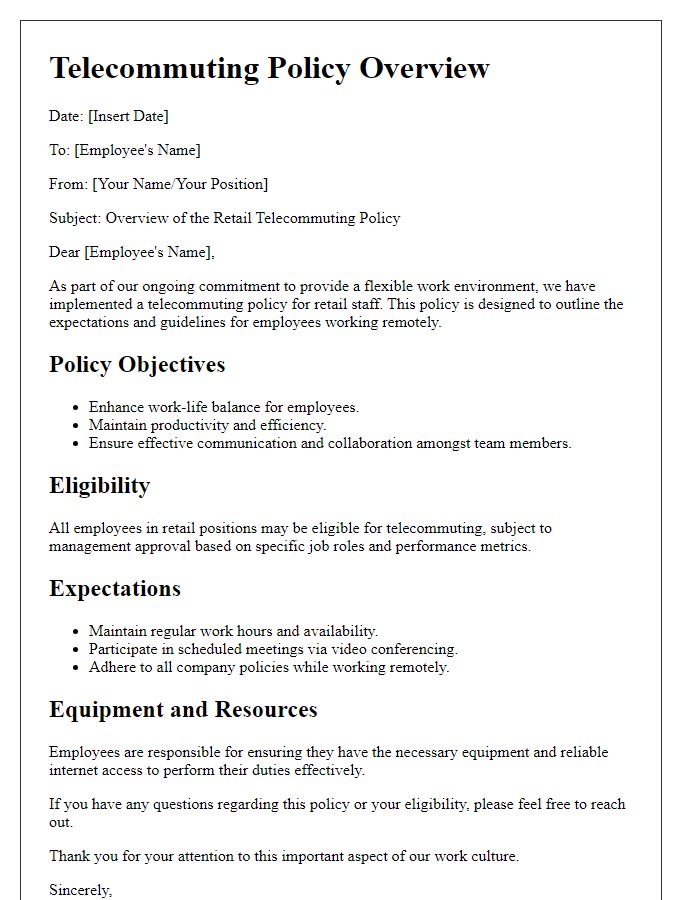
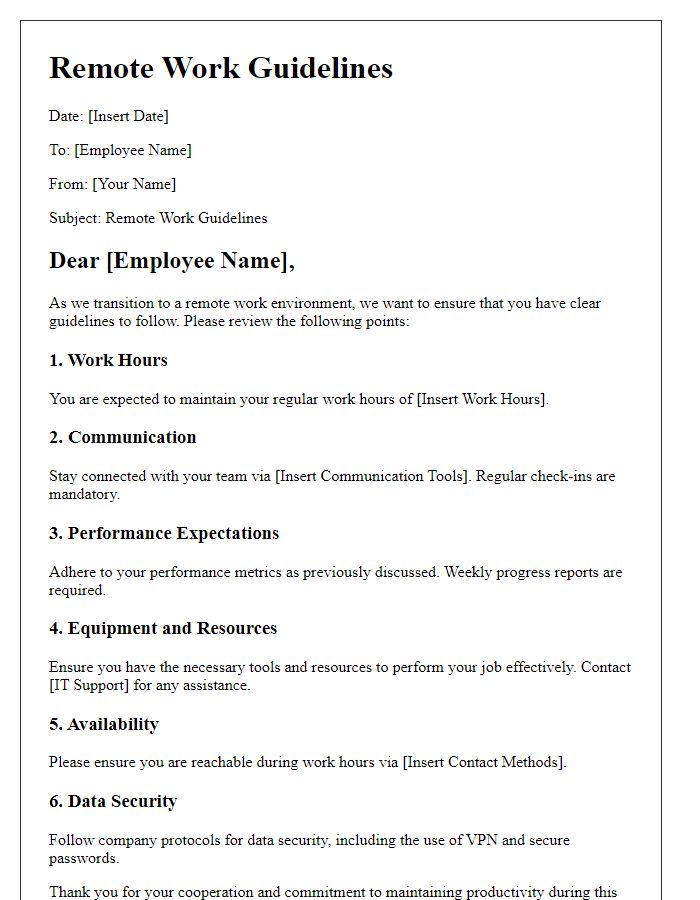
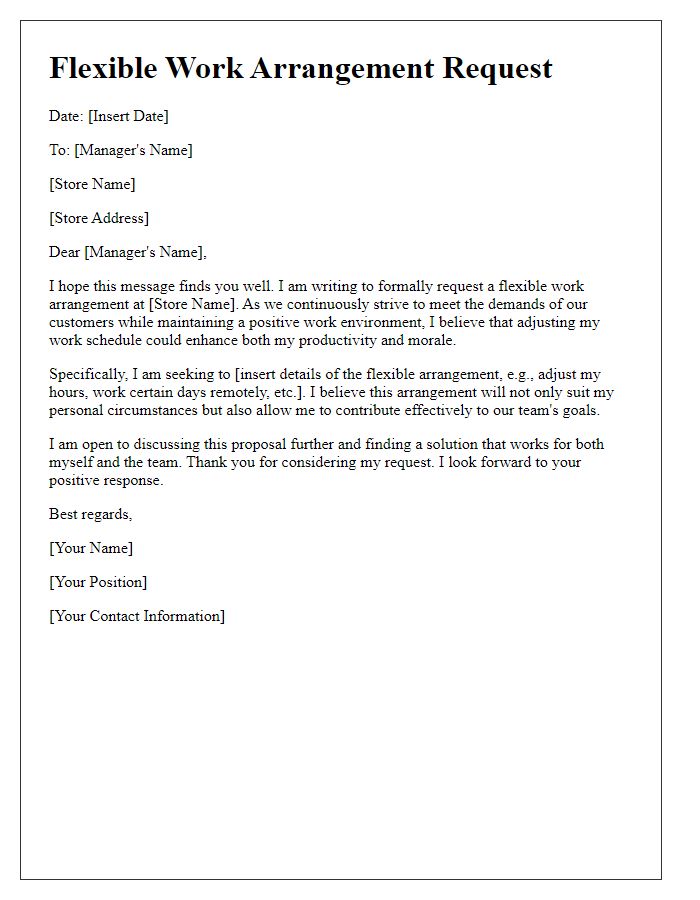
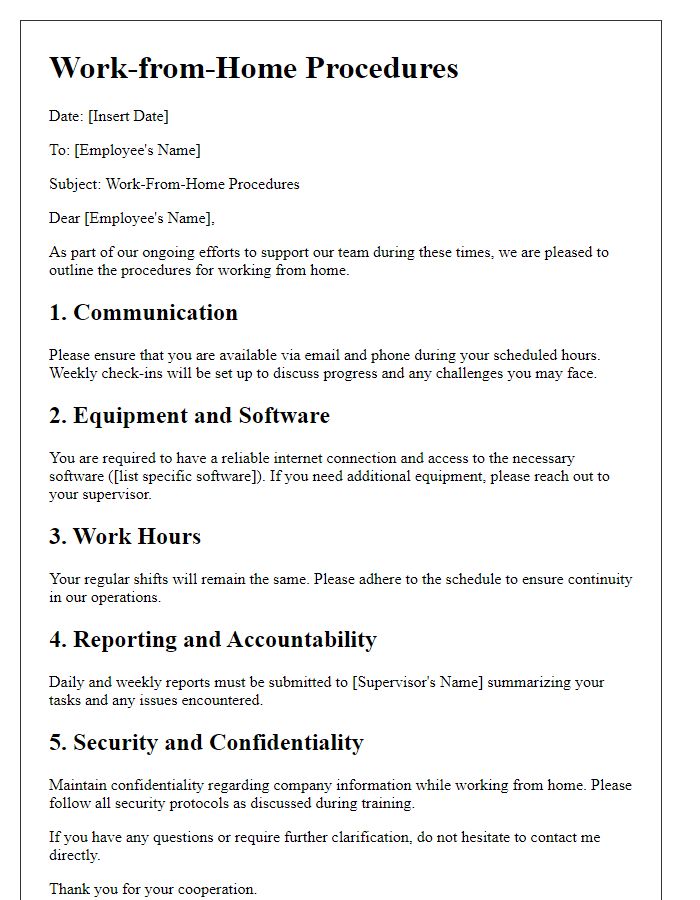
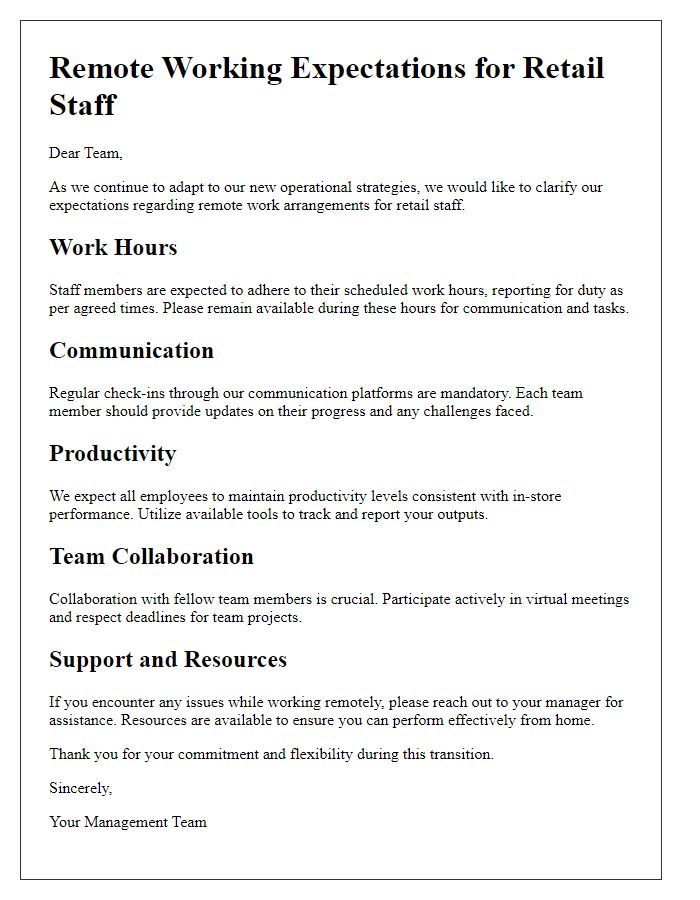
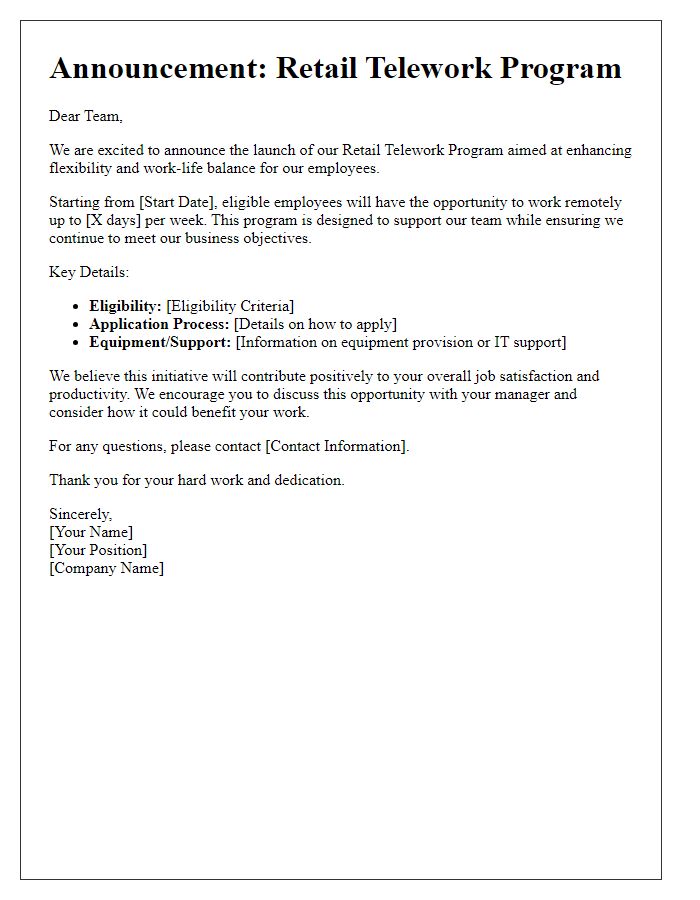
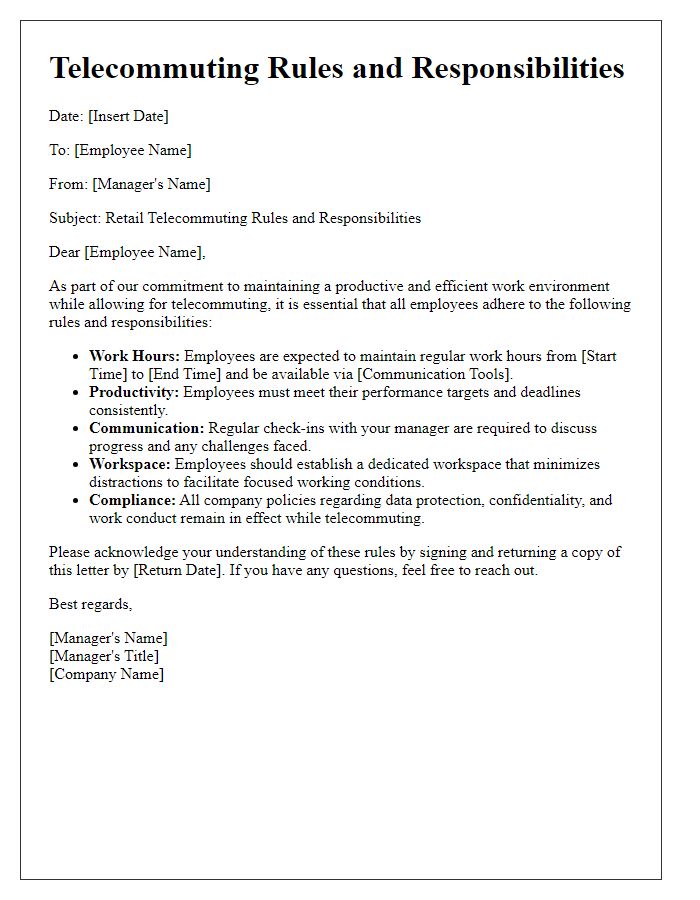
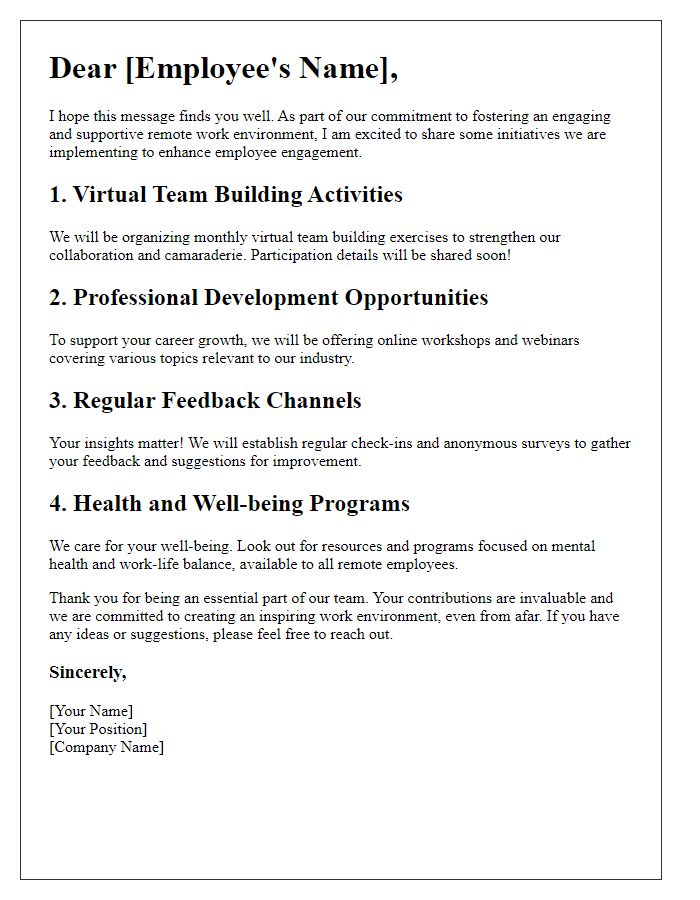
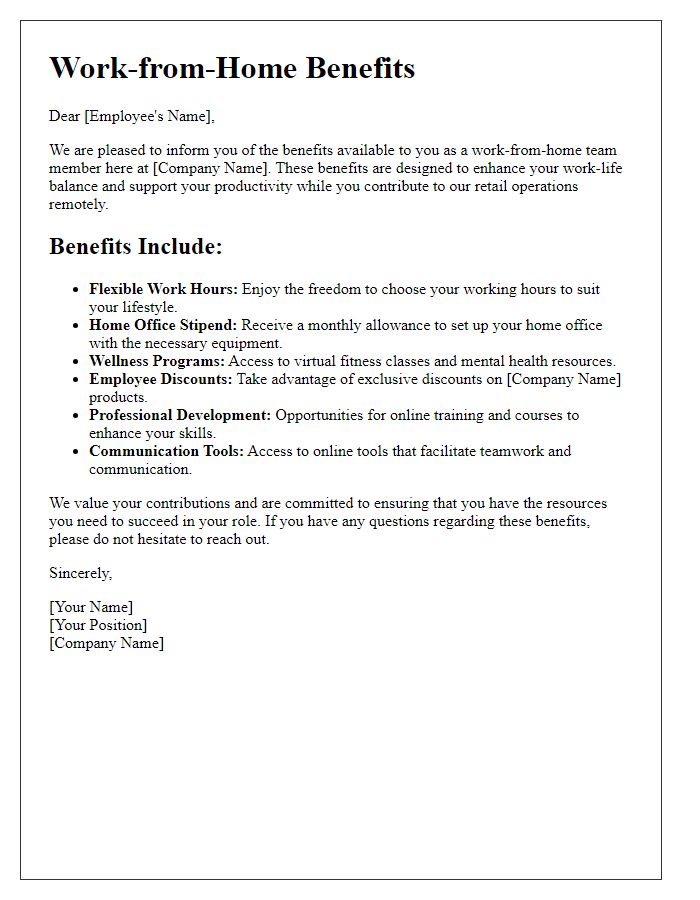
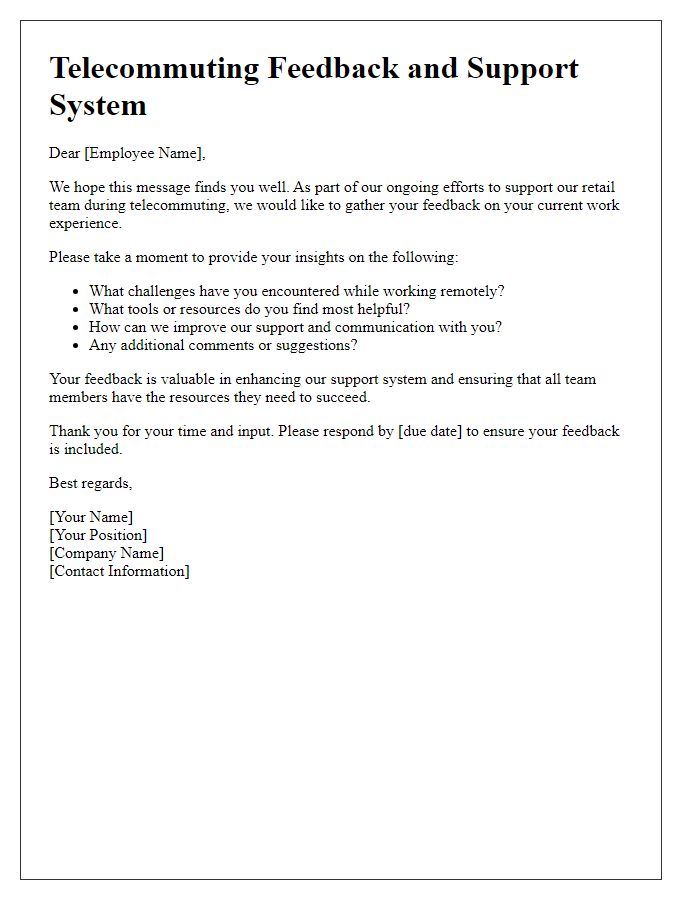


Comments